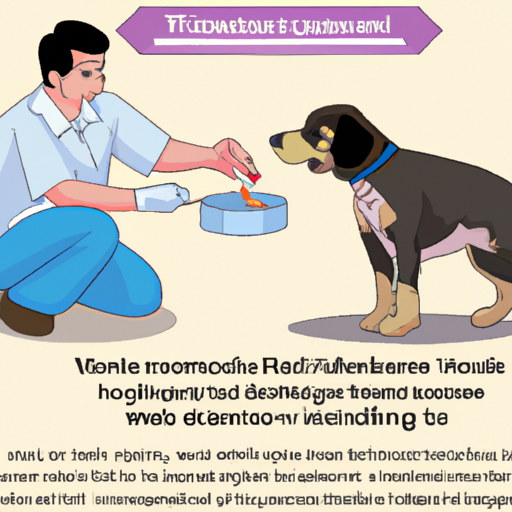As a caregiver, you may find yourself in a position where you need to deal with the problem of worms in your dogs. This guide will help you understand how to deal with this issue effectively and ensure the well-being of your furry friend.
Identifying the Presence of Worms in Dogs
A critical part of dealing with worms in dogs is being able to identify the problem. Here are some signs that your dog might have worms:
- Diarrhea
- Weight loss
- Changes in appetite
- Rough, dry coat
- Scooting on their bottom
- Visible worms in stool
Types of Worms in Dogs
There are several types of worms that can infect dogs. Understanding the type of worm your dog has is crucial to providing the right treatment. Here are the most common types:
- Roundworms: These are the most common. They are long, spaghetti-like parasites that live in the intestines.
- Hookworms: These are small and thin worms that attach to the wall of the small intestine and suck blood.
- Tapeworms: These are flat and segmented worms that are usually acquired by dogs that ingest fleas or wild game.
- Whipworms: These are thread-like worms that live in the large intestine.
| Types of Worms | Description |
|---|---|
| Roundworms | Long, spaghetti-like parasites. |
| Hookworms | Small, thin worms that suck blood. |
| Tapeworms | Flat, segmented worms. |
| Whipworms | Thread-like worms. |
Treating Worms in Dogs
The most effective way to kill worms in dogs is through de-worming treatments. These treatments are usually administered orally and can be obtained from your veterinarian. The type of treatment will depend on the type of worm your dog has.
Preventing Worms in Dogs
Prevention is always better than cure. You can protect your dog from worms by:
- Regularly cleaning your dog’s living area.
- Regularly checking your dog’s stool.
- Ensuring your dog has regular vet check-ups.
- Keeping your dog’s living area free from fleas.
- Not allowing your dog to eat animals or animal feces.
Frequently Asked Questions
Q: How often should I deworm my dog?
A: Most vets recommend de-worming adult dogs every three months.
Q: Can I get worms from my dog?
A: Yes, some worms can be transmitted from dogs to humans. Always maintain good hygiene.
Q: What should I do if my dog has worms?
A: If you suspect your dog has worms, consult your vet immediately.
Caring for our four-legged companions means being vigilant about their health. By understanding the threat of worms, how to identify them, treat them, and prevent them, you can ensure a healthy and happy life for your dog.



